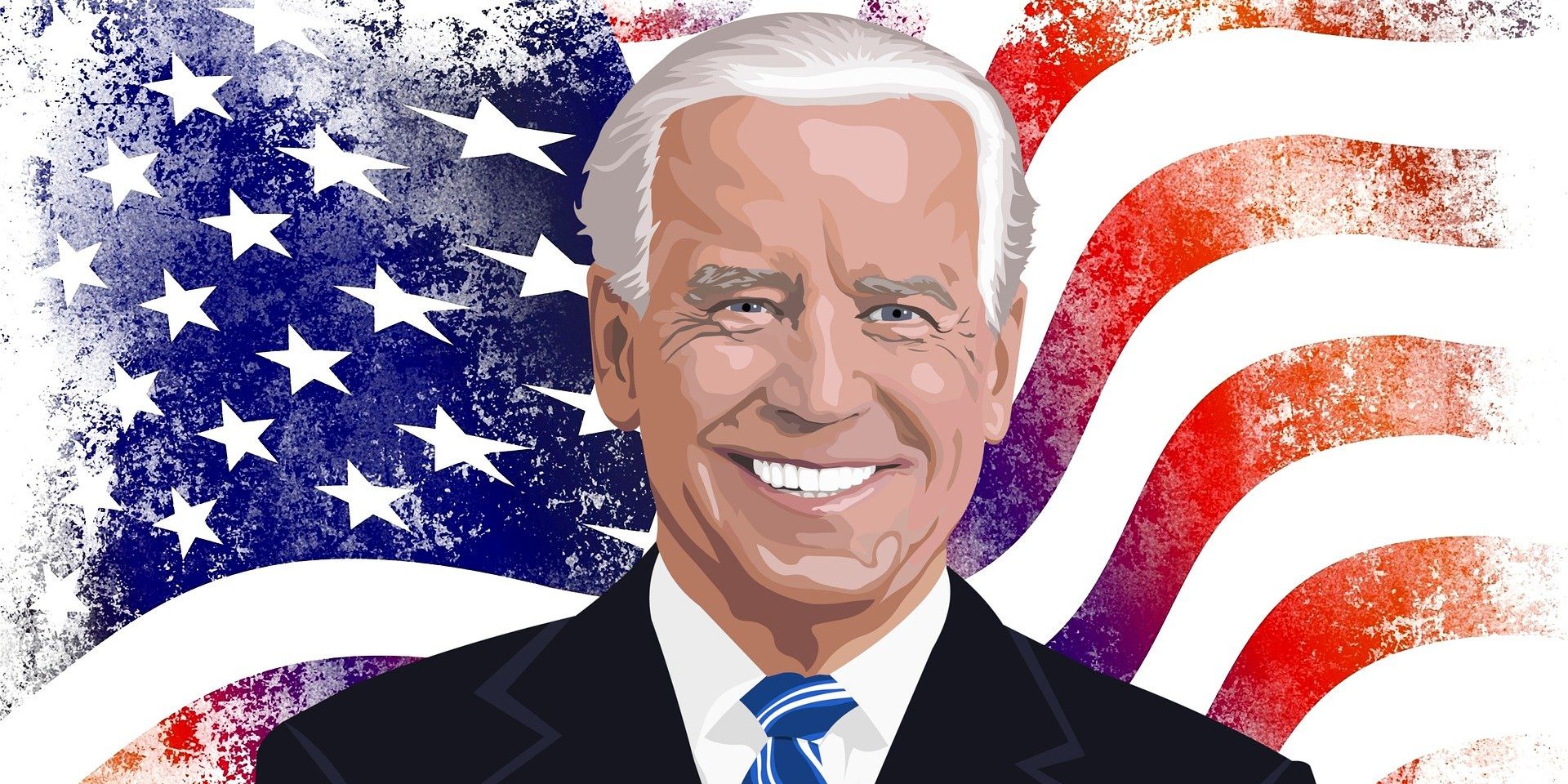Biden Inaugurated as the 46th President
WASHINGTON — Joseph Robinette Biden Jr. was sworn in on Wednesday as the 46th president of the United States, assuming leadership of a country ravaged by disease, dislocation and division with a call to “end this uncivil war” after four tumultuous years that tore at the fabric of American society.
Mr. Biden sought to immediately turn the corner on Donald J. Trump’s polarizing presidency, inviting Republicans to join him in confronting the nation’s dire economic, social and health crises even as he began dismantling his predecessor’s legacy with orders to halt construction of his border wall, lift his travel ban and re-join the Paris climate agreement.
The ritualistic transfer of power ended weeks of suspense as the vanquished president waged a relentless bid to hang on, only to be rebuffed at every level of government, clearing the way for Mr. Biden to claim his office. With his hand on a five-inch-thick Bible that has been in his family for 128 years, Mr. Biden recited the 35-word oath administered by Chief Justice John G. Roberts Jr. at 11:49 a.m., 11 minutes before the constitutionally prescribed noon hour.
Vice President Kamala Devi Harris was sworn in a few minutes earlier by Justice Sonia Sotomayor using a Bible that once belonged to Thurgood Marshall, the civil rights icon and Supreme Court justice. Ms. Harris thus became the highest-ranking woman in the history of the United States and the first Black American and first person of South Asian descent to hold the nation’s second highest office.
The drama of the moment was underscored by the sight of Mr. Biden taking the oath on the same West Front of the Capitol seized just two weeks ago by a marauding mob trying to block final ratification of Mr. Trump’s election defeat. Without ever naming Mr. Trump, who left the White House early in the morning for Florida but still faces a Senate trial for provoking his supporters, Mr. Biden said that the United States’ democratic experiment itself had come under assault by extremism and lies but ultimately endured.
“Through a crucible for the ages, America has been tested anew and America has risen to the challenge,” the president said in a 21-minute Inaugural Address that blended soaring themes with folksy touches.
“The will of the people has been heard, and the will of the people has been heeded,” he added. “We’ve learned again that democracy is precious. Democracy is fragile. And at this hour, my friends, democracy has prevailed.”
Already abbreviated because of Mr. Trump’s refusal to concede, the transition that ended Wednesday was like none before, not just from one party to another but from one reality to another. A president who came to Washington to blow up the system was replaced by one who is a lifelong creature of it. A president who seemed capable of almost anything at any moment was dislodged by one who fits comfortably in the conventions of modern politics.
Mr. Biden’s broader message was conciliatory yet challenging, as he called on Americans to put aside their deep and dark divisions to come together to confront the coronavirus pandemic, economic troubles and the scourge of racism.
“We must end this uncivil war that pits red against blue, rural versus urban, conservative versus liberal,” Mr. Biden said. “We can do this if we open our souls instead of hardening our hearts, if we show a little tolerance and humility, and if we’re willing to stand in the other person’s shoes, as my mom would say, just for a moment.”
Mr. Biden used the word “unity” or “uniting” 11 times, saying that he knew it “can sound to some like a foolish fantasy” but insisting that Americans had emerged from previous moments of discord and could do so again.
“We can join forces, stop the shouting and lower the temperature,” he said. “For without unity, there is no peace, only bitterness and fury. No progress, only exhausting outrage. No nation, only a state of chaos. This is our historic moment of crisis and challenge, and unity is the path forward.”
A historic moment, but also a surreal one. Unlike most inaugurals suffused with joy and a sense of new beginning, the nation’s 59th inauguration on a chilly but sunny day served to illustrate America’s troubles. Amid fear of further violence, Washington was transformed into an armed camp, with 25,000 National Guard troops joining thousands of police officers in blocking off a wide section of downtown.
With the pandemic still raging and the death toll topping 400,000, Americans were told to stay away, leading to the eerie spectacle of a new president addressing a largely empty National Mall, filled not with people but with flags meant to represent the absent crowd. Mr. Biden and most of the participants wore masks through most of the activities.
Many inaugural customs were scrapped because of the virus, including a lunch with congressional leaders in Statuary Hall, a full-scale parade down Pennsylvania Avenue and the gala evening balls where the new president and his wife typically dance.
Instead, Mr. Biden reviewed military units at the Capitol and later proceeded to the White House escorted by military marching bands as well as drum lines from the University of Delaware and Howard University, the alma maters of the new president and vice president.
Mr. Biden and his wife, Jill Biden, his son Hunter Biden and his daughter Ashley Biden, as well as a passel of grandchildren and other relatives, emerged from the motorcade to walk the final blocks to the White House, but it was a gesture aimed more at cameras than the crowd because there were more police and National Guard troops than spectators.
Still, one tradition that went forward left an impression. Amanda Gorman, 22, a self-described “skinny Black girl, descended from slaves and raised by a single mother,” became the youngest inaugural poet in American history and drew raves for her powerful words:
“Somehow, we’ve weathered and witnessed
“A nation that isn’t broken, but simply unfinished.”
In characteristic fashion, Mr. Trump defied custom by leaving Washington hours before the swearing-in, although Mike Pence, his vice president, did attend. In remarks to supporters before boarding Air Force One, Mr. Trump still could not bring himself to mention Mr. Biden’s name but said, “I wish the new administration great luck and great success.” He did leave the traditional note for his successor, which Mr. Biden later called “a very generous letter.”
Mr. Biden expressed no regret about Mr. Trump’s absence but sought to project common cause with Republican as well as Democratic leaders in the Capitol in a chummy gathering after the ceremony with none of the animus that characterized Mr. Trump’s era. He even tried to persuade them to still call him Joe.
“No, Joe,” Representative Steny H. Hoyer, Democrat of Maryland and the majority leader, corrected him. “You’re ‘Mr. President.’”
“He makes me call him that, too,” Dr. Biden joked.
“Marriage is about to get rocky, I can tell,” Mr. Hoyer laughed.
Then, in a laying on of hands of sorts by the world’s most exclusive club — a club that never accepted Mr. Trump, who likewise shunned them — three former presidents from both parties, Barack Obama, George W. Bush and Bill Clinton, joined Mr. Biden in placing a wreath at the Tomb of the Unknowns at Arlington National Cemetery. (Jimmy Carter, at 96, was unable to attend, but spoke with Mr. Biden by phone on Tuesday night.)
If the pomp and circumstance were constrained by the challenges of the day, Mr. Biden’s determination to get off to a fast start unravelling the Trump presidency was not. In the Oval Office, where he had Mr. Trump’s portrait of Andrew Jackson taken down and one of Franklin D. Roosevelt put up, Mr. Biden signed 17 executive orders, memorandums and proclamations aimed at reversing major elements of the last administration, a significant repudiation of his predecessor and a more expansive set of Inauguration Day actions than any in modern history.
Among other things, Mr. Biden issued a national mask mandate for federal workers and federal property, sought to extend an eviction pause and student loan relief, suspended construction of Mr. Trump’s border wall, lifted the travel ban on certain predominantly Muslim countries, barred discrimination by the federal government based on sexual orientation or gender identity and imposed a moratorium on oil and natural gas leases in the Arctic National Wildlife Refuge.
Some of the orders were more symbolic than substantive, and enduring change will still require legislation. To that end, Mr. Biden unveiled an immigration overhaul providing a path to citizenship for 11 million people living in the country illegally that will have to be approved by Congress in what is sure to be a contentious debate.
Commanding attention in Congress will be a challenge, with Mr. Trump’s trial most likely consuming the Senate for days or weeks. As it stands, the Senate confirmed only one of Mr. Biden’s nominees on Inauguration Day, Avril Haines as director of national intelligence, another breach of custom. Mr. Trump had two of his cabinet secretaries confirmed on the day he took office, while Mr. Obama and Mr. Bush each had seven.
With Ms. Harris’s inauguration and the swearing-in of two new senators later in the day, the Senate, evenly divided with 50 Democrats and 50 Republicans, flipped to the Democrats thanks to her tiebreaking vote as the chamber’s president. Senator Chuck Schumer, Democrat of New York, became the majority leader and hoped to create two parallel tracks so the Senate could consider nominations and legislation even as it conducted the Trump trial.
But some Republicans signalled resistance, or at least scepticism. “I hope that the words can be transmitted into action, and we’ll have an opportunity with the Covid package and other things to see how much bipartisanship we can actually have,” said Senator Rob Portman of Ohio. “Let’s hope that the spirit of the moment translates into real action.”
Mr. Biden began working on his Inaugural Address before Thanksgiving in a process run by his long-time adviser Mike Donilon. He received help from Jon Meacham, the historian who is serving as an informal outside adviser, as well as from Vinay Reddy, his speechwriter, while also relying on his sister, Valerie Biden Owens, who has long been an important sounding board.
He was particularly determined to call out the forces of “political extremism, white supremacy, domestic terrorism,” as he put it, implicitly faulting Mr. Trump’s relentless bid to overturn the election with false accusations of widespread fraud — baseless claims that fuelled the mob that ransacked the Capitol.
“Recent weeks and months have taught us a painful lesson,” Mr. Biden said. “There is truth and there are lies, lies told for power and for profit, and each of us has a duty and a responsibility as citizens, as Americans and especially as leaders, leaders who have pledged to honour our Constitution and protect our nation, to defend the truth and defeat the lies.”
In many respects, Mr. Biden could hardly be more of a contrast to the president he succeeded. A long-time senator, former vice president and consummate Washington insider, Mr. Biden prides himself on his experience working across the aisle and hopes to forge a partnership with Senator Mitch McConnell of Kentucky, the minority leader, and other Republicans.
Garrulous and loquacious, known for an incandescent smile, a sometimes overly familiar shoulder rub and a proclivity for gaffes, Mr. Biden practices the sort of feel-your-pain politics of empathy mastered by Mr. Clinton and the call-me-anytime politics of relationships exemplified by the first President George Bush.
At 78, Mr. Biden is the oldest president in American history — older on his first day in office than Ronald Reagan was on his last — and even allies quietly acknowledge that he is no longer at his prime, meaning he will be constantly watched by friends and foes alike for signs of decline. But he overcame the doubts and the obstacles to claim the prize of his lifetime nearly 34 years after kicking off the first of his three presidential campaigns.
Mr. Biden arrived at the pinnacle of power with a tailwind of public support. Fifty-seven percent of Americans view him favourably, according to Gallup, a higher rating than Mr. Trump ever saw in office. But in a measure of the impact of Mr. Trump’s drumbeat of false accusations of election fraud, 32 percent told CNN pollsters that they did not believe Mr. Biden won the election legitimately.
Mr. Biden and Ms. Harris bring new diversity to the top echelon of government. Mr. Biden is only the second Catholic president after John F. Kennedy. Ms. Harris, 56, a former senator and state attorney general from California, broke multiple gender and racial barriers in winning the vice presidency.
“Here we stand, where 108 years ago, at another inaugural, thousands of protesters tried to block brave women marching for the right to vote,” Mr. Biden said. “And today we marked the swearing-in of the first woman in American history elected to national office: Vice President Kamala Harris. Don’t tell me things can’t change.”
To honour those who defended the Capitol, Ms. Harris was escorted to the swearing-in by Eugene Goodman, a Capitol Police officer and Black man who was captured on video facing down members of the mostly white mob and diverting them from the Senate chamber.
Performing at the Capitol ceremony were Lady Gaga, Jennifer Lopez and Garth Brooks, while a host of other famous entertainers participated in a virtual “Parade Across America” livestreamed from 56 states and territories.
Instead of the formal dances, the new first and second couples took part in a 90-minute televised evening program called “Celebrating America” hosted by the actor Tom Hanks and featuring stars like Kerry Washington, Bruce Springsteen, Eva Longoria, Lin-Manuel Miranda and Demi Lovato.
Source: NEW YORK TIMES
“Congratulations to Joe Biden, the 46th President of the United States!
Americans and the world will be expecting great change and wise decisions but so far, that road looks good.”
Alexander KING










